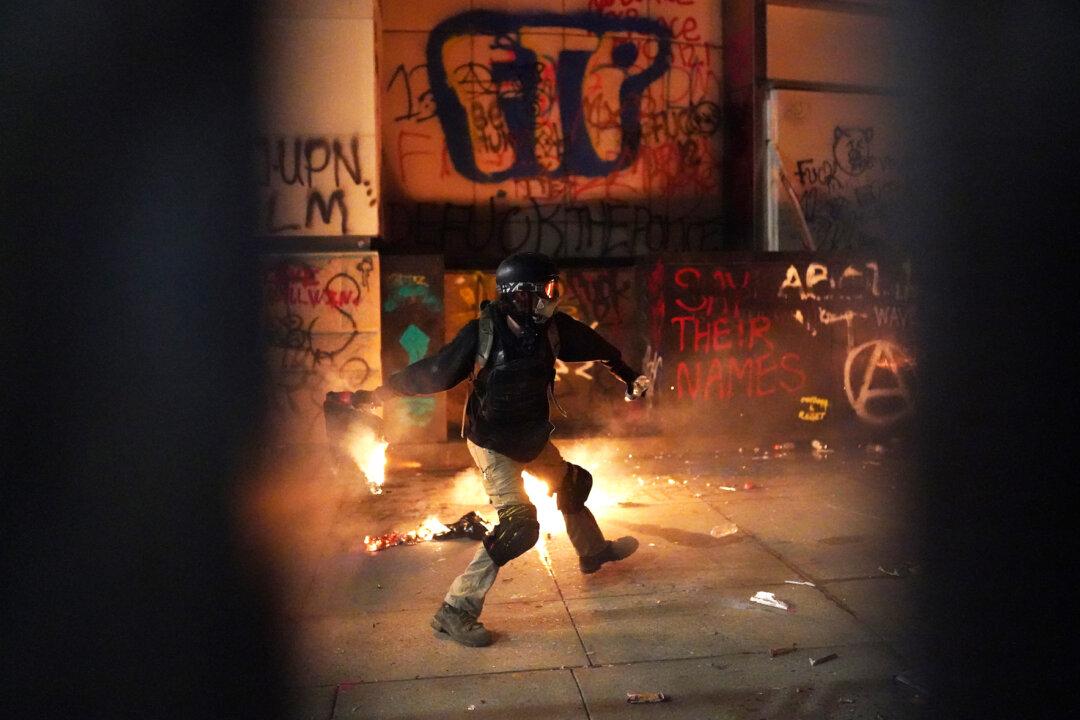PORTLAND, Ore.—Each night, as the last scatters of sunlight fade away, hundreds, sometimes thousands, of protesters and rioters begin to emerge. Their target: the Mark O. Hatfield U.S. Courthouse located in downtown Portland, Oregon.
What awaits them inside the courthouse is a mix of agents from the Federal Protective Service, the U.S. Marshals Service, and U.S. Customs and Border Protection. They were sent to the city as reinforcements to protect federal buildings.





